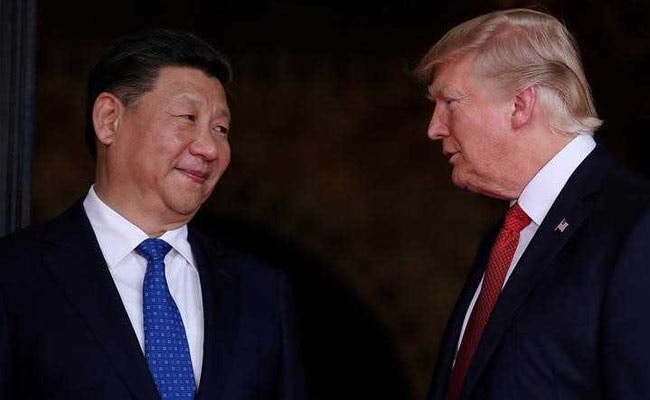
China, North Korea's only major ally, has steadfastly rebuffed Washington's calls for a full oil embargo
Beijing:
Beijing has protested against Washington's decision to impose sanctions against Chinese companies accused of conducting illicit economic deals with North Korea, the foreign ministry said.
US President Donald Trump on Friday announced measures targeting more than 50 North Korea-linked shipping companies, vessels and trade businesses, hailing the package as the "heaviest sanctions ever" levied on the nuclear-armed regime.
The measures, which the US says are aimed at forcing Pyongyang to roll back its banned nuclear and weapons programmes, apply to companies located or registered in North Korea, China, Singapore, Taiwan, Hong Kong, Marshall Islands, Tanzania, Panama and Comoros.
Washington has been locked in a nuclear standoff with Pyongyang, which is trying to develop missiles that could deliver an atomic weapon to major US cities, and the sanctions are designed to put the squeeze on North Korea's already precarious economy and fuel supply.
"China is strongly opposed to the United States' long-arm jurisdiction and unilateral sanctions on Chinese entities and individuals," foreign ministry spokesman Geng Shuang said on Saturday.
"We have lodged solemn representations to the United States and asked the U.S. to immediately cease the wrong practice so as to avoid undermining relevant cooperation between the two sides," he added.
China, North Korea's only major ally, has steadfastly rebuffed Washington's calls for a full oil embargo -- fearing the chaotic collapse of the Pyongyang regime -- but has accepted caps agreed at the United Nations.
"We will never allow Chinese citizens or companies to be engaged in activities that violate resolutions from the United Nations Security Council," Geng said.
But Washington says its latest measures target entities that have helped Pyongyang evade UN sanctions.
The North Korean military and broader economy depend heavily on imports of coal and oil from Russia and China, with the latter accounting for some 90 percent of the country's trade.
Last year, the Security Council adopted a series of resolutions to ban North Korean exports of commodities, including coal, iron and steel.
(This story has not been edited by NDTV staff and is auto-generated from a syndicated feed.)
US President Donald Trump on Friday announced measures targeting more than 50 North Korea-linked shipping companies, vessels and trade businesses, hailing the package as the "heaviest sanctions ever" levied on the nuclear-armed regime.
The measures, which the US says are aimed at forcing Pyongyang to roll back its banned nuclear and weapons programmes, apply to companies located or registered in North Korea, China, Singapore, Taiwan, Hong Kong, Marshall Islands, Tanzania, Panama and Comoros.
Washington has been locked in a nuclear standoff with Pyongyang, which is trying to develop missiles that could deliver an atomic weapon to major US cities, and the sanctions are designed to put the squeeze on North Korea's already precarious economy and fuel supply.
"China is strongly opposed to the United States' long-arm jurisdiction and unilateral sanctions on Chinese entities and individuals," foreign ministry spokesman Geng Shuang said on Saturday.
"We have lodged solemn representations to the United States and asked the U.S. to immediately cease the wrong practice so as to avoid undermining relevant cooperation between the two sides," he added.
China, North Korea's only major ally, has steadfastly rebuffed Washington's calls for a full oil embargo -- fearing the chaotic collapse of the Pyongyang regime -- but has accepted caps agreed at the United Nations.
"We will never allow Chinese citizens or companies to be engaged in activities that violate resolutions from the United Nations Security Council," Geng said.
But Washington says its latest measures target entities that have helped Pyongyang evade UN sanctions.
The North Korean military and broader economy depend heavily on imports of coal and oil from Russia and China, with the latter accounting for some 90 percent of the country's trade.
Last year, the Security Council adopted a series of resolutions to ban North Korean exports of commodities, including coal, iron and steel.
(This story has not been edited by NDTV staff and is auto-generated from a syndicated feed.)
Track Latest News Live on NDTV.com and get news updates from India and around the world

